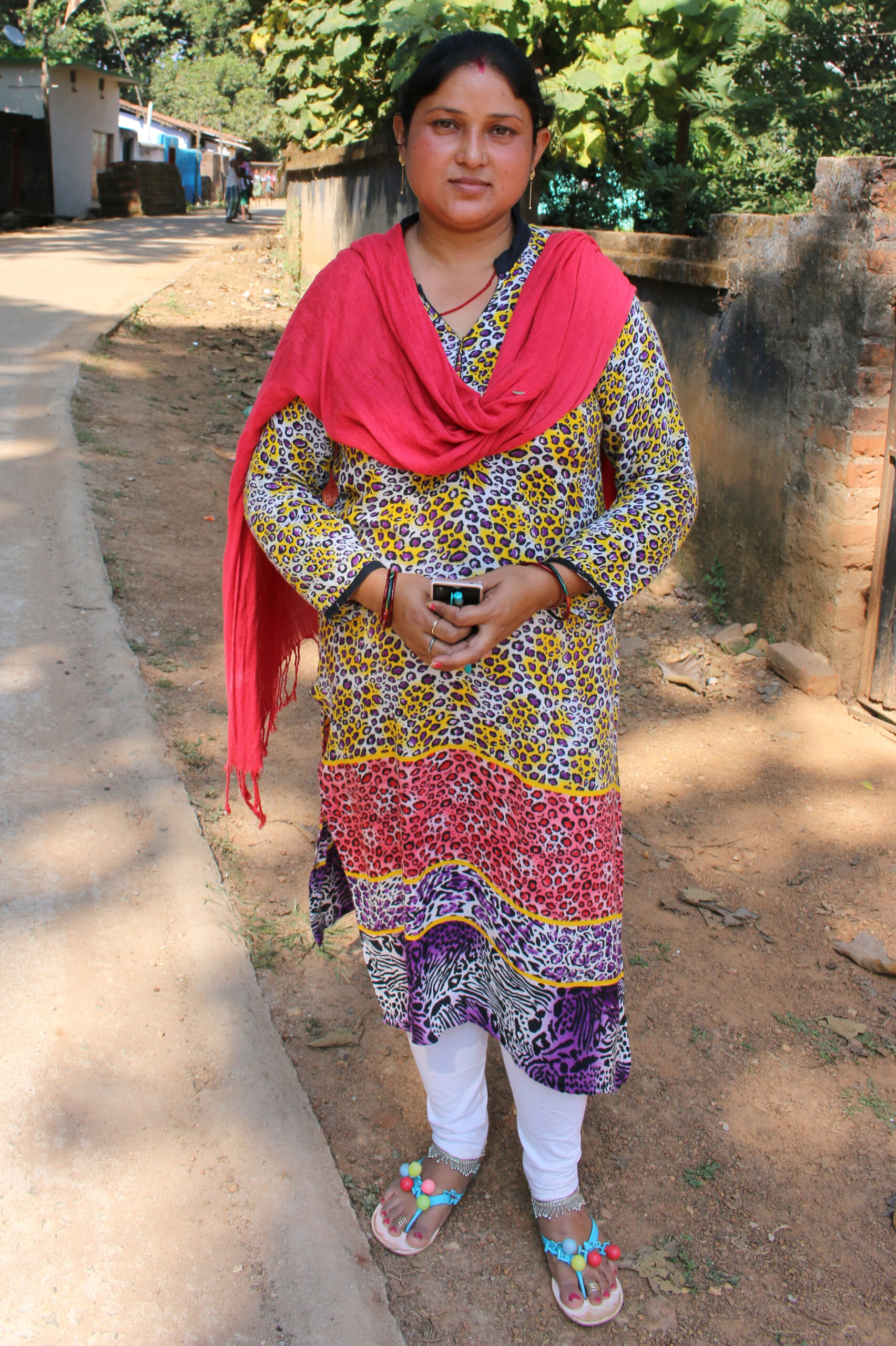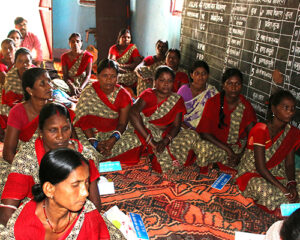To learn more about Digital Green’s AI-powered platform and how it impacts small-scale farmers in India, Ethiopia, Kenya, Nigeria and Brazil, we encourage you to sign up for our newsletter.
Discovering Empowerment and Knowledge in Rural Jharkhand

Upon my return from my first field visit after joining Digital Green, I was frequently confronted by curious colleagues and friends asking “How was it? What did you see? What did you learn?” These simple questions left me thinking. The truth is, what I saw and felt is not easily explained with a “Good or Great”.
I spent almost a week visiting villages and interviewing health workers and beneficiaries in various districts of Jharkhand to understand Digital Green’s approach and impact to capture how this is being used to achieve the goals and objectives of the USAID supported project Samvad.
In Jharkhand, we work in partnership with Jharkhand State Livelihood Promotion Society (JSLPS) who have a cadre of community resource persons called Cluster Convergence Coordinators (CCCs). They are trained in various government initiatives. Digital Green leverages these resource persons to disseminate best practices on health and nutrition among Self-help Groups and Anganwadi Centres. They use Digital Green’s videos to share information with beneficiaries and other health workers.
This was my first visit to Jharkhand and I was completely mesmerized by the beauty around me. We had to drive through the dense Saranda forest (frequently in the news for internal conflict) to reach our destination, Manoharpur block in West Singhbhum district.

It is here that I met Janki Mahto, a fiesty CCC. Conversation between us flowed easily as she described her experience of joining JSLPS and attending Digital Green’s trainings.
Curious to understand the impact of the training, I asked her if she felt empowered after being trained on video dissemination. She said, “I didn’t know what being an empowered woman meant. I used to be at home, cooking and taking care of the children. After getting trained on Health & Nutrition videos, I have resumed my studies and can operate a smartphone and a Pico projector. I can now educate and empower other women to make informed choices for themselves and their families. It is now, I have realized what empowerment means”
I further asked, “How does your husband feel, now that you are earning? Does he allow you to be out for so long?” to which she replied, “In the beginning, my husband didn’t support me. I had to struggle to become a coordinator. Now, when he sees other women coming to me for advice, he feels proud. When I go for trainings, he comes to drop me at different meeting locations. He also stays at home and cooks.”
The discussion was an eye-opener for me, living in Delhi, we easily assume that women in rural areas are unaware and not empowered enough. We imagine ourselves as their ‘knights in shining armours’ who would magically appear to improve their lives but little did I know a training on video dissemination is itself an opportunity to invest in their empowerment.
Next day, I attended a dissemination training on immediate breastfeeding in Chiria town of West Singhbhum, attended by the local tribal women. I asked how many of them fed their baby breast milk within the first hour of the birth. I was surprised that most of the women raised their hand. Upon further probing, they related this practice to how the calf is fed its mother’s milk immediately after birth. This simple parallel that they drew with nature around them displayed such wealth of knowledge that I felt ashamed to have doubted their apparent simplicity.
local tribal women. I asked how many of them fed their baby breast milk within the first hour of the birth. I was surprised that most of the women raised their hand. Upon further probing, they related this practice to how the calf is fed its mother’s milk immediately after birth. This simple parallel that they drew with nature around them displayed such wealth of knowledge that I felt ashamed to have doubted their apparent simplicity.
The next day I travelled to Patratu, a town in Ramgarh district of Jharkhand where I attended a video dissemination training and met the beneficiaries. When I asked them about why they adopted specific practices, the beneficiaries said that there are certain practices that they understand and are easy to adopt in their daily life. And if they personally benefit from that practice, they tell their friends and neighbours and aspire to better services.
This first visit to the areas where Digital Green is working in left me hopeful and optimistic about the future of these women living in the difficult to reach areas. It might be difficult to hear their voices, but the stories they tell are poignant and worth listening to.